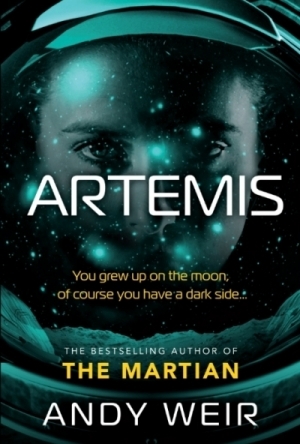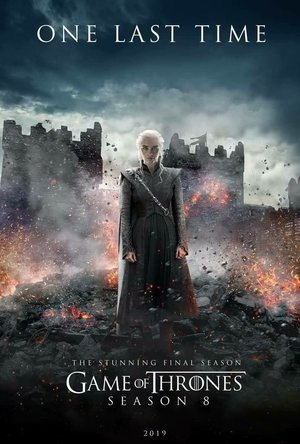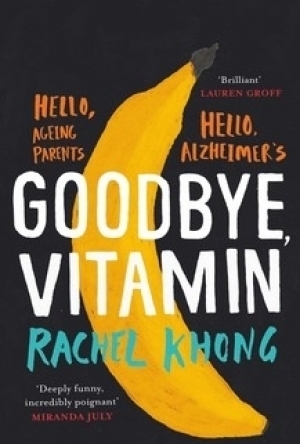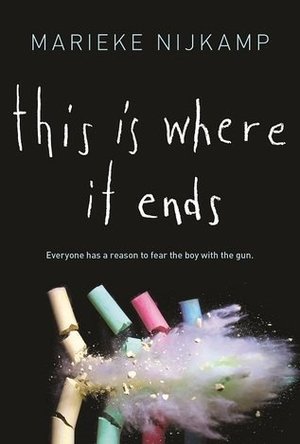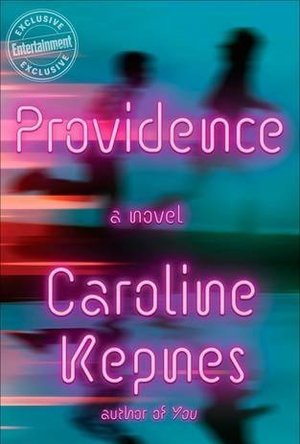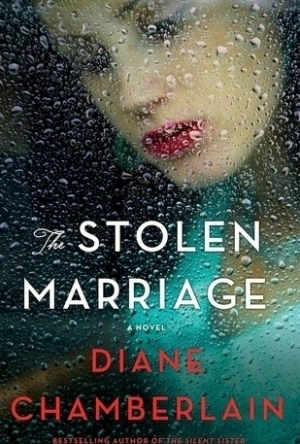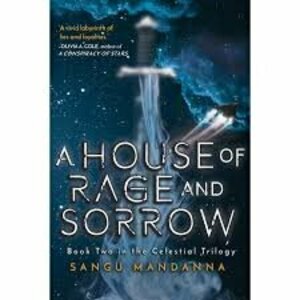Search
Search results
Hazel (1853 KP) rated Mirror, Shoulder, Signal in Books
Aug 7, 2017
Danish Literature
I received this book for free through Goodreads First Reads.
Shortlisted for The Man Booker International Prize 2017, Mirror, Shoulder, Signal is a piece of Danish literature by Dorthe Nors, translated into English by Misha Hoekstra. It has a tragicomic nature, introducing the 40-year-old Sonja, a woman who is trying but failing to move in the right direction.
Sonja is the type of character full of flaws that readers will recognise in themselves. Although she has successfully become self-employed, translating crime novels from Swedish into Danish, Sonja feels she has not accomplished anything in life. Despite one unlucky attempt at love, Sonja has remained single, moving to Copenhagen in an attempt to find herself. Determined to earn her driving licence Sonja braves the lessons in the busy city, however, she cannot handle gear changes. In other areas of her life, she tries weekly massage therapy and attempts a meditation exercise. Unfortunately, Sonja remains apathetic to the whole scenario and would rather be somewhere warm eating cake.
Mirror, Shoulder, Signal is a cleverly crafted title that makes repeat appearances throughout the narrative. The three words are instructions that Sonja repeats as a mantra each time she pulls away from the curb in her instructor’s car. The majority of the book takes place during these lessons, or, if not there, face down on Ellen’s massage table.
Sonja’s narration constantly varies between the present and memories from her childhood. A particular focus is the recollection of events involving her sister Kate. They may not have been close when they were young, but now it is almost impossible for Sonja to contact her sister. It is as though Sonja has been alienated from her own family.
Embellished with sexual innuendos, poor attempts at humour fail to bring any excitement to the story. There is no clear plot. At the beginning, readers may wonder if she will earn her driver’s licence – she does not – find love – she does not – find herself – she does not. What, then, was the point of this novel? Apart from a suggestion of future happiness in the final chapter of the book, there is no sense of resolution.
The issue with some translated stories is the loss of original intent and meanings. This does not seem to have been much of a problem in this instance; however, the translator has not been entirely successful in converting the Danish into a naturally flowing English.
Overall, Mirror, Shoulder, Signal is a bit of a disappointment, especially because it has been shortlisted for such a prestigious prize. Since the prize is meant to be awarding the author for continued creativity and contribution to fiction, it makes you wonder what critics saw in this novel to believe it stood a chance at earning the honour.
Shortlisted for The Man Booker International Prize 2017, Mirror, Shoulder, Signal is a piece of Danish literature by Dorthe Nors, translated into English by Misha Hoekstra. It has a tragicomic nature, introducing the 40-year-old Sonja, a woman who is trying but failing to move in the right direction.
Sonja is the type of character full of flaws that readers will recognise in themselves. Although she has successfully become self-employed, translating crime novels from Swedish into Danish, Sonja feels she has not accomplished anything in life. Despite one unlucky attempt at love, Sonja has remained single, moving to Copenhagen in an attempt to find herself. Determined to earn her driving licence Sonja braves the lessons in the busy city, however, she cannot handle gear changes. In other areas of her life, she tries weekly massage therapy and attempts a meditation exercise. Unfortunately, Sonja remains apathetic to the whole scenario and would rather be somewhere warm eating cake.
Mirror, Shoulder, Signal is a cleverly crafted title that makes repeat appearances throughout the narrative. The three words are instructions that Sonja repeats as a mantra each time she pulls away from the curb in her instructor’s car. The majority of the book takes place during these lessons, or, if not there, face down on Ellen’s massage table.
Sonja’s narration constantly varies between the present and memories from her childhood. A particular focus is the recollection of events involving her sister Kate. They may not have been close when they were young, but now it is almost impossible for Sonja to contact her sister. It is as though Sonja has been alienated from her own family.
Embellished with sexual innuendos, poor attempts at humour fail to bring any excitement to the story. There is no clear plot. At the beginning, readers may wonder if she will earn her driver’s licence – she does not – find love – she does not – find herself – she does not. What, then, was the point of this novel? Apart from a suggestion of future happiness in the final chapter of the book, there is no sense of resolution.
The issue with some translated stories is the loss of original intent and meanings. This does not seem to have been much of a problem in this instance; however, the translator has not been entirely successful in converting the Danish into a naturally flowing English.
Overall, Mirror, Shoulder, Signal is a bit of a disappointment, especially because it has been shortlisted for such a prestigious prize. Since the prize is meant to be awarding the author for continued creativity and contribution to fiction, it makes you wonder what critics saw in this novel to believe it stood a chance at earning the honour.
Bookapotamus (289 KP) rated Artemis in Books
May 25, 2018
Huge Martian fan here! And this one, while totally different, did not disappoint! There is plenty of space drama, including the fear of what could happen when crisis occurs, but also some charm, witty characters and some pretty crazy daredevil situations.
I didn't particularly like Jazz, the main character. Shes got man drama, friend drama, family drama, work drama.... BUT she is one pretty bad-ass chick who does whatever she wants and for the most part, takes no blame. She's extremely immature for her age (late 20s?) and incredibly irresponsible, and I couldn't believe she got away with some of the antics that went on in this book. Especially on the Moon!
Artemis is just that - a city - but on the moon! Very cool concept, totally different idea than The Martian. It's a pretty common practice to travel back and forth from Earth to the Moon occurs, but only if you are a zillionaire and can afford to do so. It is a hot vacation destination for rich and famous travelers, but like a lot of vacation hot spots - there are those who live and work there, like Jazz, and are natives, born there, work there, and are neither rich nor famous.
Jazz works in transportation, unloading the ships that bring stuff from Earth - which covers for her side job as a smuggler - bringing in contraband to those who request it- like cigars, etc. (um hellooo? we all know fire does not bode well in space!) One request for a pretty shady request, sends the entire city into complete chaos. Why on Moon (see what I did there?) would Jazz stoop so low and put the entire city in danger? Money - and lots of it. Jazz is saving up for something, and money is her answer to everything. And we slowly unfold the story that makes up Jazz and start to understand why she is the way she is. We also see how ridiculously smart and courageous she is and you may even start to like her a little!
There is a LOT of science in this book. I now know exactly how to weld on the moon. I mean, exactly. My husband is a welder and I read some parts to him and he said it all sounded pretty legit, so I can imagine the research that went into crafting some parts of the story.
Overall it was a lot of fun - Jazz is quite the character and I'd totally read a sequel if Jazz had another story to tell. Andy Weir knows his space, and I'm quite glad he loves it so much to write such entertaining and engaging stories for us.
I didn't particularly like Jazz, the main character. Shes got man drama, friend drama, family drama, work drama.... BUT she is one pretty bad-ass chick who does whatever she wants and for the most part, takes no blame. She's extremely immature for her age (late 20s?) and incredibly irresponsible, and I couldn't believe she got away with some of the antics that went on in this book. Especially on the Moon!
Artemis is just that - a city - but on the moon! Very cool concept, totally different idea than The Martian. It's a pretty common practice to travel back and forth from Earth to the Moon occurs, but only if you are a zillionaire and can afford to do so. It is a hot vacation destination for rich and famous travelers, but like a lot of vacation hot spots - there are those who live and work there, like Jazz, and are natives, born there, work there, and are neither rich nor famous.
Jazz works in transportation, unloading the ships that bring stuff from Earth - which covers for her side job as a smuggler - bringing in contraband to those who request it- like cigars, etc. (um hellooo? we all know fire does not bode well in space!) One request for a pretty shady request, sends the entire city into complete chaos. Why on Moon (see what I did there?) would Jazz stoop so low and put the entire city in danger? Money - and lots of it. Jazz is saving up for something, and money is her answer to everything. And we slowly unfold the story that makes up Jazz and start to understand why she is the way she is. We also see how ridiculously smart and courageous she is and you may even start to like her a little!
There is a LOT of science in this book. I now know exactly how to weld on the moon. I mean, exactly. My husband is a welder and I read some parts to him and he said it all sounded pretty legit, so I can imagine the research that went into crafting some parts of the story.
Overall it was a lot of fun - Jazz is quite the character and I'd totally read a sequel if Jazz had another story to tell. Andy Weir knows his space, and I'm quite glad he loves it so much to write such entertaining and engaging stories for us.
Ross (3284 KP) rated Game Of Thrones - Season 8 in TV
May 29, 2019 (Updated May 30, 2019)
A bit of a let-down
I don't think I will ever understand why the decision was made to squeeze the final season into 6 episodes. This seems to have put all the onus on ending storylines quickly and less on building tension. And yet, so much of this series was slow, drawn out padding.
There were two episodes of pretty much non-stop action. These were visually stunning, however so badly written and incongruous. Given how well the series as a whole has tried to mimic medieval European history, to have a battle start and end in a very short time was simply nonsense. No attention to likely battle plans was attempted (a sieging army wouldn't attack, and a besieged army wouldn't come out onto the field of battle), it was just a CGI-heavy, smoky, frantic fight.
The rest of the series was a much slower pace, which is GoT's style. However those episodes were so flat and dull as to be like someone else entirely had written them. Gone was the political wrangling, the back-stabbing and the two-facedness (generally, there were some brief moments of this).
The focus of each episode was also almost solely in one place, where it has always been at its best by showing so many things at a time. Rather than this being the convergence of all story threads, this just came across as storytelling-by-numbers.
I had no problems with Daenerys' change in character - it had been so well hinted at that you didn't have to be the 3-eyed raven to see it coming. It also felt totally in line with her past decisions, and family history, and this was one of the few parts I felt were well written and understandable.
A lot of fan-favourite characters got shat on in the final few series, but I don't see why people are surprised - the main character of the first series was beheaded in that same series, so this was quite normal for GoT.
I really did not like the final outcome of the series, with Bran on the throne and the whole scene with all the lords (some of whom I still don't recognise) was painful - why would they listen to Tyrion and go with his "can't defeat a story" nonsense.
Overall, it was not a finale worthy of the series as a whole, but it was a reasonably enjoyable and at times thrilling conclusion to an epic story.
And one good thing to come out of this is the motivation it will give other writers: get on with finishing your stories or Benioff and Weiss will do it for you!
There were two episodes of pretty much non-stop action. These were visually stunning, however so badly written and incongruous. Given how well the series as a whole has tried to mimic medieval European history, to have a battle start and end in a very short time was simply nonsense. No attention to likely battle plans was attempted (a sieging army wouldn't attack, and a besieged army wouldn't come out onto the field of battle), it was just a CGI-heavy, smoky, frantic fight.
The rest of the series was a much slower pace, which is GoT's style. However those episodes were so flat and dull as to be like someone else entirely had written them. Gone was the political wrangling, the back-stabbing and the two-facedness (generally, there were some brief moments of this).
The focus of each episode was also almost solely in one place, where it has always been at its best by showing so many things at a time. Rather than this being the convergence of all story threads, this just came across as storytelling-by-numbers.
I had no problems with Daenerys' change in character - it had been so well hinted at that you didn't have to be the 3-eyed raven to see it coming. It also felt totally in line with her past decisions, and family history, and this was one of the few parts I felt were well written and understandable.
A lot of fan-favourite characters got shat on in the final few series, but I don't see why people are surprised - the main character of the first series was beheaded in that same series, so this was quite normal for GoT.
I really did not like the final outcome of the series, with Bran on the throne and the whole scene with all the lords (some of whom I still don't recognise) was painful - why would they listen to Tyrion and go with his "can't defeat a story" nonsense.
Overall, it was not a finale worthy of the series as a whole, but it was a reasonably enjoyable and at times thrilling conclusion to an epic story.
And one good thing to come out of this is the motivation it will give other writers: get on with finishing your stories or Benioff and Weiss will do it for you!
Kristy H (1252 KP) rated Goodbye, Vitamin in Books
Jan 21, 2018
Funny (2 more)
Sweet moments
Well-written
Lovely, touching read
After a rough breakup with her fiance, Ruth reluctantly accepts her mother's request to return home and help care for her father, Howard, who is suffering from Alzheimer's disease. Once home, Ruth realizes that Howard--an extremely well-respected professor of history--has his good days and bad days, while her mother has stopped cooking (blaming the aluminum in cookware for Howard's illness). Floundering at first, Ruth eventually steps up, cooking for her family, helping her father, and generally trying to regain her footing. But even she cannot ignore that her father's condition is worsening.
This is an interesting novel, told in short bits and pieces, as if Ruth is talking to her father and describing their days. It covers one year after she comes to stay and comes across almost as if a diary, with a very conversational tone (interspersed with her random thoughts). It's oddly compelling and often humorous, despite the serious subject matter. Occasionally, we get a few snippets from a journal Ruth's father kept during her childhood, chronicling funny things she did or said as a child.
As for Ruth, there's a lightness to many of her stories and observations, but also a sadness: she's watching her beloved, intelligent father fall prey to Alzheimer's; there is a darkness as well, as she grapples with finding out imperfections about her parents' marriage and life. The character list is limited, but all we need, including Ruth's younger brother, Linus; Howard's former teaching assistant, Theo; and a few of Ruth's friends. Ruth comes across as a very real person: she doesn't have it all together, but that's okay. A few pieces of the overall story path are predictable, but do not detract from your overall enjoyment of the book.
The few portions we get from Howard's journal regarding young Ruth are amazing: they humanize him and definitely capture parenthood perfectly. They also so well illustrate how Ruth and Howard are slowly switching roles from child to parent, as Ruth almost begins to have similar observations about her own failing father. The way Khong depicts the sadness and poignancy in these moments is just beautiful and brilliant.
In the end, this is a different kind of book: you have to have the patience for it. It doesn't necessarily tell a story in a full arc, but it's sweet and moving. I very much liked Ruth and the novel (even I did wonder how both Ruth and eventually Linus could afford to stay with their parents, while jobless, but oh well.). Lovely and touching - certainly worth picking up.
I received a copy of this novel from the publisher and Netgalley (thank you!) in return for an unbiased review
This is an interesting novel, told in short bits and pieces, as if Ruth is talking to her father and describing their days. It covers one year after she comes to stay and comes across almost as if a diary, with a very conversational tone (interspersed with her random thoughts). It's oddly compelling and often humorous, despite the serious subject matter. Occasionally, we get a few snippets from a journal Ruth's father kept during her childhood, chronicling funny things she did or said as a child.
As for Ruth, there's a lightness to many of her stories and observations, but also a sadness: she's watching her beloved, intelligent father fall prey to Alzheimer's; there is a darkness as well, as she grapples with finding out imperfections about her parents' marriage and life. The character list is limited, but all we need, including Ruth's younger brother, Linus; Howard's former teaching assistant, Theo; and a few of Ruth's friends. Ruth comes across as a very real person: she doesn't have it all together, but that's okay. A few pieces of the overall story path are predictable, but do not detract from your overall enjoyment of the book.
The few portions we get from Howard's journal regarding young Ruth are amazing: they humanize him and definitely capture parenthood perfectly. They also so well illustrate how Ruth and Howard are slowly switching roles from child to parent, as Ruth almost begins to have similar observations about her own failing father. The way Khong depicts the sadness and poignancy in these moments is just beautiful and brilliant.
In the end, this is a different kind of book: you have to have the patience for it. It doesn't necessarily tell a story in a full arc, but it's sweet and moving. I very much liked Ruth and the novel (even I did wonder how both Ruth and eventually Linus could afford to stay with their parents, while jobless, but oh well.). Lovely and touching - certainly worth picking up.
I received a copy of this novel from the publisher and Netgalley (thank you!) in return for an unbiased review
Kristy H (1252 KP) rated This Is Where It Ends in Books
Feb 13, 2018
On a chilly day, the principal of Opportunity High School is giving a speech to her students, kicking off the new semester. The majority of the school is gathered in the auditorium, listening to her speak. As she finishes, they prepare to head to their next class, but the doors are stuck. Then, suddenly, someone begins to shoot.
The book is told from the viewpoint of a handful of kids (four) from Opportunity High and basically unfolds in less than a hour -- the time it takes for a horrific tragedy to fall upon their school and community. We hear from Sylvia and her twin brother Tomas. We also get the perspective of Autumn, Sylvia's best friend, who is struggling with the death of her mother and her abusive father, all the while watching her brother, Tyler, an Opportunity High dropout, drift away from her. Finally, we see things from Claire's perspective; a member of the track team - Claire is outside practicing when the tragedy begins, but worried about her brother Matt, who is inside.
I read this book in a few hours - its short time span makes it terrifying and you want to speed through to find out what happens to these kids. It's an all too horrifying and realistic account of what can happen with school shootings (and beware, some of the descriptions can be very graphic). The interwoven stories of the kids do a good job of telling the story and portraying the strong bond of family and friendship that can exist -- especially at the hyper-sensitive stage of high school, where everything truly does seem like life or death sometimes.
There's an added LGBT angle to this story, which is a nice twist, as it's very natural to the book. The kids' tales, overall, seem true to their voices, but some of the writing is stilted and tough to read (not from the subject matter, but the way it's written). The author overuses the play on words with "opportunity" far too much - it would have been better to just let the story play itself out. We get the parallels - no need to spell them out (over and over and over) for us.
Still, this is a powerful book - it's heartbreakingly lovely, really, and will leave you hoping and praying that no more children *ever* have to go through this experience. It's a worthy read, even if it leaves you hurting, but I would make sure you talk about it in detail with your teens. It's a tough subject matter that needs to be discussed.
(I received an ARC of this book from Netgalley in return for an unbiased review.)
The book is told from the viewpoint of a handful of kids (four) from Opportunity High and basically unfolds in less than a hour -- the time it takes for a horrific tragedy to fall upon their school and community. We hear from Sylvia and her twin brother Tomas. We also get the perspective of Autumn, Sylvia's best friend, who is struggling with the death of her mother and her abusive father, all the while watching her brother, Tyler, an Opportunity High dropout, drift away from her. Finally, we see things from Claire's perspective; a member of the track team - Claire is outside practicing when the tragedy begins, but worried about her brother Matt, who is inside.
I read this book in a few hours - its short time span makes it terrifying and you want to speed through to find out what happens to these kids. It's an all too horrifying and realistic account of what can happen with school shootings (and beware, some of the descriptions can be very graphic). The interwoven stories of the kids do a good job of telling the story and portraying the strong bond of family and friendship that can exist -- especially at the hyper-sensitive stage of high school, where everything truly does seem like life or death sometimes.
There's an added LGBT angle to this story, which is a nice twist, as it's very natural to the book. The kids' tales, overall, seem true to their voices, but some of the writing is stilted and tough to read (not from the subject matter, but the way it's written). The author overuses the play on words with "opportunity" far too much - it would have been better to just let the story play itself out. We get the parallels - no need to spell them out (over and over and over) for us.
Still, this is a powerful book - it's heartbreakingly lovely, really, and will leave you hoping and praying that no more children *ever* have to go through this experience. It's a worthy read, even if it leaves you hurting, but I would make sure you talk about it in detail with your teens. It's a tough subject matter that needs to be discussed.
(I received an ARC of this book from Netgalley in return for an unbiased review.)
Bookapotamus (289 KP) rated Providence: A Novel in Books
Jun 23, 2018
Super Fun Read!
Wow! This was my first Caroline Kepnes book and let me tell you - it will NOT be my last! I loved this book, I flew through it and did not want it to end, and what a fun and unique story! I'm a HUGE Stranger Things fan, and this reminded me a bit of that - part sci-fi/fantasy/horror, but also part mystery/detective thriller - so many things I love all mixed in to one really clever tale. In the end, it's really a fun journey across time between two star crossed lovers - desperate to be together in a masterfully crafted journey of horrible circumstances that may forever keep them apart.
You get sucked in right away... Jon and Chloe are high school teens, the best of friends, and you assume, in time, they'll be together forever as you can see how much they love one another. Then, one morning Jon gets kidnapped and everything changes. Something happened to him and we might never be able to see if him and Chloe will that next step and spend their lives together. The things that have happened to him, may keep them apart forever.
The coming-of-age part is really interesting here, because Jon misses so much he's forced to grow up when his body has already done so. And the duality of good vs. evil comes into play a lot - and what a struggle it is to keep the two separate, when their pull is almost beyond control. We also follow the story of Eggs, who is a pretty darn smart detective, obsessed with a case that haunts him. And we follow his own life, his struggle with family, and how he tries to put the pieces of his own life back together while it falls apart around him - as he tries to solve a really strange mystery.
There is a lot of HP Lovecraft reference in this book, including a yearly Lovecraft convention (he was from Providence). I've heard him referenced in several novels before but have never actually read his work. I think I just might have to check it out now. BUT it did not hinder the story at all if you aren't familiar with his work. I am not familiar, and I loved every minute of the book!
This book was so much fun - a bit peculiar in parts but seriously, a fun ride from start to finish. Thanks to NetGalley and Caroline Kepnes and Random House Publishing Group for the advanced copy to review.
You get sucked in right away... Jon and Chloe are high school teens, the best of friends, and you assume, in time, they'll be together forever as you can see how much they love one another. Then, one morning Jon gets kidnapped and everything changes. Something happened to him and we might never be able to see if him and Chloe will that next step and spend their lives together. The things that have happened to him, may keep them apart forever.
The coming-of-age part is really interesting here, because Jon misses so much he's forced to grow up when his body has already done so. And the duality of good vs. evil comes into play a lot - and what a struggle it is to keep the two separate, when their pull is almost beyond control. We also follow the story of Eggs, who is a pretty darn smart detective, obsessed with a case that haunts him. And we follow his own life, his struggle with family, and how he tries to put the pieces of his own life back together while it falls apart around him - as he tries to solve a really strange mystery.
There is a lot of HP Lovecraft reference in this book, including a yearly Lovecraft convention (he was from Providence). I've heard him referenced in several novels before but have never actually read his work. I think I just might have to check it out now. BUT it did not hinder the story at all if you aren't familiar with his work. I am not familiar, and I loved every minute of the book!
This book was so much fun - a bit peculiar in parts but seriously, a fun ride from start to finish. Thanks to NetGalley and Caroline Kepnes and Random House Publishing Group for the advanced copy to review.
Hazel (1853 KP) rated Mirror, Shoulder, Signal in Books
Dec 7, 2018
<i>I received this book for free through Goodreads First Reads.</i>
Shortlisted for The Man Booker International Prize 2017, <i>Mirror, Shoulder, Signal</i> is a piece of Danish literature by Dorthe Nors, translated into English by Misha Hoekstra. It has a tragicomic nature, introducing the 40-year-old Sonja, a woman who is trying but failing to move in the right direction.
Sonja is the type of character full of flaws that readers will recognise in themselves. Although she has successfully become self-employed, translating crime novels from Swedish into Danish, Sonja feels she has not accomplished anything in life. Despite one unlucky attempt at love, Sonja has remained single, moving to Copenhagen in an attempt to find herself. Determined to earn her driving licence Sonja braves the lessons in the busy city, however, she cannot handle gear changes. In other areas of her life, she tries weekly massage therapy and attempts a meditation exercise. Unfortunately, Sonja remains apathetic to the whole scenario and would rather be somewhere warm eating cake.
<i>Mirror, Shoulder, Signal</i> is a cleverly crafted title that makes repeat appearances throughout the narrative. The three words are instructions that Sonja repeats as a mantra each time she pulls away from the curb in her instructor’s car. The majority of the book takes place during these lessons, or, if not there, face down on Ellen’s massage table.
Sonja’s narration constantly varies between the present and memories from her childhood. A particular focus is the recollection of events involving her sister Kate. They may not have been close when they were young, but now it is almost impossible for Sonja to contact her sister. It is as though Sonja has been alienated from her own family.
Embellished with sexual innuendos, poor attempts at humour fail to bring any excitement to the story. There is no clear plot. At the beginning, readers may wonder if she will earn her driver’s licence – she does not – find love – she does not – find herself – she does not. What, then, was the point of this novel? Apart from a suggestion of future happiness in the final chapter of the book, there is no sense of resolution.
The issue with some translated stories is the loss of original intent and meanings. This does not seem to have been much of a problem in this instance; however, the translator has not been entirely successful in converting the Danish into a naturally flowing English.
Overall, <i>Mirror, Shoulder, Signal</i> is a bit of a disappointment, especially because it has been shortlisted for such a prestigious prize. Since the prize is meant to be awarding the author for continued creativity and contribution to fiction, it makes you wonder what critics saw in this novel to believe it stood a chance at earning the honour.
Shortlisted for The Man Booker International Prize 2017, <i>Mirror, Shoulder, Signal</i> is a piece of Danish literature by Dorthe Nors, translated into English by Misha Hoekstra. It has a tragicomic nature, introducing the 40-year-old Sonja, a woman who is trying but failing to move in the right direction.
Sonja is the type of character full of flaws that readers will recognise in themselves. Although she has successfully become self-employed, translating crime novels from Swedish into Danish, Sonja feels she has not accomplished anything in life. Despite one unlucky attempt at love, Sonja has remained single, moving to Copenhagen in an attempt to find herself. Determined to earn her driving licence Sonja braves the lessons in the busy city, however, she cannot handle gear changes. In other areas of her life, she tries weekly massage therapy and attempts a meditation exercise. Unfortunately, Sonja remains apathetic to the whole scenario and would rather be somewhere warm eating cake.
<i>Mirror, Shoulder, Signal</i> is a cleverly crafted title that makes repeat appearances throughout the narrative. The three words are instructions that Sonja repeats as a mantra each time she pulls away from the curb in her instructor’s car. The majority of the book takes place during these lessons, or, if not there, face down on Ellen’s massage table.
Sonja’s narration constantly varies between the present and memories from her childhood. A particular focus is the recollection of events involving her sister Kate. They may not have been close when they were young, but now it is almost impossible for Sonja to contact her sister. It is as though Sonja has been alienated from her own family.
Embellished with sexual innuendos, poor attempts at humour fail to bring any excitement to the story. There is no clear plot. At the beginning, readers may wonder if she will earn her driver’s licence – she does not – find love – she does not – find herself – she does not. What, then, was the point of this novel? Apart from a suggestion of future happiness in the final chapter of the book, there is no sense of resolution.
The issue with some translated stories is the loss of original intent and meanings. This does not seem to have been much of a problem in this instance; however, the translator has not been entirely successful in converting the Danish into a naturally flowing English.
Overall, <i>Mirror, Shoulder, Signal</i> is a bit of a disappointment, especially because it has been shortlisted for such a prestigious prize. Since the prize is meant to be awarding the author for continued creativity and contribution to fiction, it makes you wonder what critics saw in this novel to believe it stood a chance at earning the honour.
Necole (36 KP) rated The Stolen Marriage in Books
Aug 12, 2018
Ok so let me just say the cover of this novel is absolutely stunning … all the water droplets are raised and the image is breath taking!!!!
After reading the synopsis of the story in the cover, I was hooked into wanting to read this and the novel did not disappoint. This is not only a multilayered, multifaceted novel of plots and characters but also genre of books. The writing is like watching a movie playing in your head … Chamberlain has a way at pulling you in and making you feel all different emotions throughout the story. Each character is written in a way that you feel like you know them and see their growth and there views and feel each of their stories. If you like historical fiction or mystery or self discovery or even romance, you will love The Stolen Marriage.
The book is set in 1943-1945 with an epilogue that is 1955. It starts out with Tess in Baltimore, which in these times is considered to have northern values and religions with a mix of cultures. Then the story continues into Hickory NC where southern religions, views on colored people, values such as money and family come into play. I am not going to summarize it too much and give too much away nor am I going to describe the synopsis of the book that is given because it is spot on. However, the first chapter draws you in with an accident and a death!!! Then the story unfolds where Tess makes a detrimental decision that changes her path in life drastically. Then its a wild, emotional and beautiful story about a marriage to someone she doesn't know and slowly gets to know, loosing people that are precious to her, loosing herself and finding herself when she becomes a nurse and uses these skills when the polio epidemic hits Hickory, how the town comes together during this time to build a make shift hospital in a very short time, losing and regretting the love of her life, finding out people are not what they make of themselves, secrets that come to light throughout the book, finding out that even though differences are evident you still can learn and overcome a way of thinking, and so much more.
The decisions she makes changes not only her path but others as well. And also the decisions others make change Tess and change the characters lives as well.
This book has race issues, religious issues, moral dilemmas, moral values, personal growth, finding ones true self, etc.
I highly recommend this book!!!!! It was an amazing read, compelling story telling and so many plots wrapped up in one incredible novel!
After reading the synopsis of the story in the cover, I was hooked into wanting to read this and the novel did not disappoint. This is not only a multilayered, multifaceted novel of plots and characters but also genre of books. The writing is like watching a movie playing in your head … Chamberlain has a way at pulling you in and making you feel all different emotions throughout the story. Each character is written in a way that you feel like you know them and see their growth and there views and feel each of their stories. If you like historical fiction or mystery or self discovery or even romance, you will love The Stolen Marriage.
The book is set in 1943-1945 with an epilogue that is 1955. It starts out with Tess in Baltimore, which in these times is considered to have northern values and religions with a mix of cultures. Then the story continues into Hickory NC where southern religions, views on colored people, values such as money and family come into play. I am not going to summarize it too much and give too much away nor am I going to describe the synopsis of the book that is given because it is spot on. However, the first chapter draws you in with an accident and a death!!! Then the story unfolds where Tess makes a detrimental decision that changes her path in life drastically. Then its a wild, emotional and beautiful story about a marriage to someone she doesn't know and slowly gets to know, loosing people that are precious to her, loosing herself and finding herself when she becomes a nurse and uses these skills when the polio epidemic hits Hickory, how the town comes together during this time to build a make shift hospital in a very short time, losing and regretting the love of her life, finding out people are not what they make of themselves, secrets that come to light throughout the book, finding out that even though differences are evident you still can learn and overcome a way of thinking, and so much more.
The decisions she makes changes not only her path but others as well. And also the decisions others make change Tess and change the characters lives as well.
This book has race issues, religious issues, moral dilemmas, moral values, personal growth, finding ones true self, etc.
I highly recommend this book!!!!! It was an amazing read, compelling story telling and so many plots wrapped up in one incredible novel!
Anne (15130 KP) rated A House of Rage and Sorrow (The Celestial Trilogy, #2) in Books
Nov 4, 2019
I'd say this was probably about a 4 star read for me. I have been looking forward to this book after reading A Spark of White Fire, the previous book, which was an amazing 5 stars for me. This book is more or less a retelling of the Mahabarata in Space and it's different because it's written based from Hindu Mythology, which I don't read a lot of, but have always wanted to read and know more about it.
This book was harder to read for me than the first because it was more emotional than the first, maybe a bit more dark and heavy, but it had to be for where the story's going and with where the story was in the first book. I had a major book hangover from the first book, but the book hangover isn't quite as bad this time. I'm more nervous about reading what comes next because it got pretty intense and emotional during this one.
It picks up right where it left off from the ending of the second book, flows well with the transition, but if you haven't read the first book, you might not get what's going on so I would recommend reading the previous book first before this one.
Without getting too spoilery here, the twins are even more at odds here in this book, Esmae, and Alexi, because of fighting over Kali and who gets to be the ruler and especially because of what happened with the duel and Rama. Oh man, that was a hard part of the story, that's part of why this book is so hard because of what happened with Rama. More family info, dynamics, and things develop and come to light throughout this book and the romance develops more between certain characters like Max and Esmae. There's a lot of information and feelings that are covered in this book and it deals with a lot of grief, sadness, anger with the fighting and everything that's happened, is going on and is going to happen.
I didn't like it as much as the first book because it was so heavy and dark from the emotional standpoint, but it kind of had to be that way in this part of the story. There was also a few instances of profanity/language that bothered me because I prefer to read stories without language and such when possible. Other than that, it was a well written good book that I would recommend to others especially if you loved the first one, which if you haven't read the first one, you should. Also if you want to read a Sci-Fi and Fantasy story in space that is a retelling and involves the Mahabarata and Hindu Mythology then you should read it.
This book was harder to read for me than the first because it was more emotional than the first, maybe a bit more dark and heavy, but it had to be for where the story's going and with where the story was in the first book. I had a major book hangover from the first book, but the book hangover isn't quite as bad this time. I'm more nervous about reading what comes next because it got pretty intense and emotional during this one.
It picks up right where it left off from the ending of the second book, flows well with the transition, but if you haven't read the first book, you might not get what's going on so I would recommend reading the previous book first before this one.
Without getting too spoilery here, the twins are even more at odds here in this book, Esmae, and Alexi, because of fighting over Kali and who gets to be the ruler and especially because of what happened with the duel and Rama. Oh man, that was a hard part of the story, that's part of why this book is so hard because of what happened with Rama. More family info, dynamics, and things develop and come to light throughout this book and the romance develops more between certain characters like Max and Esmae. There's a lot of information and feelings that are covered in this book and it deals with a lot of grief, sadness, anger with the fighting and everything that's happened, is going on and is going to happen.
I didn't like it as much as the first book because it was so heavy and dark from the emotional standpoint, but it kind of had to be that way in this part of the story. There was also a few instances of profanity/language that bothered me because I prefer to read stories without language and such when possible. Other than that, it was a well written good book that I would recommend to others especially if you loved the first one, which if you haven't read the first one, you should. Also if you want to read a Sci-Fi and Fantasy story in space that is a retelling and involves the Mahabarata and Hindu Mythology then you should read it.

Kung Fu Panda Holiday Storybook
Book and Entertainment
App
★ Featured in "What's Hot" in the Apple App Store iStoryTime brings you Kung Fu Panda Holiday...

